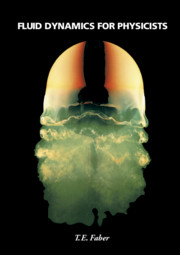9 - Turbulence
Published online by Cambridge University Press: 05 June 2012
Summary
Introduction
It is not infrequently claimed that the subject of turbulence contains the last great unsolved problems that classical physics has to offer. What are these problems, and how important are they? These are not easy questions to answer in a short space, and the answers sketched under four headings below are partial in two senses of the word. They are partial in that they are incomplete, and they are also partial in that they reflect the prejudices of someone whose understanding of the subject derives at second hand from what others have written about it.
The development of turbulence
Turbulence is often triggered by one of the instabilities discussed in chapter 8, and these have been exhaustively studied and seem well enough understood. Relatively little is known, however, about the processes which link trigger and explosion, i.e. which lead from an infinitesimal perturbation in one part of a fluid system to genuine turbulence downstream. Most fluid dynamicists probably believed until the 1970's that there were few general principles to be discovered in this area, apart from the essentially qualitative idea that once a state of laminar flow has been corrupted by one perturbation it tends to provide a breeding ground within which perturbations on a smaller scale may grow.
- Type
- Chapter
- Information
- Fluid Dynamics for Physicists , pp. 343 - 383Publisher: Cambridge University PressPrint publication year: 1995



